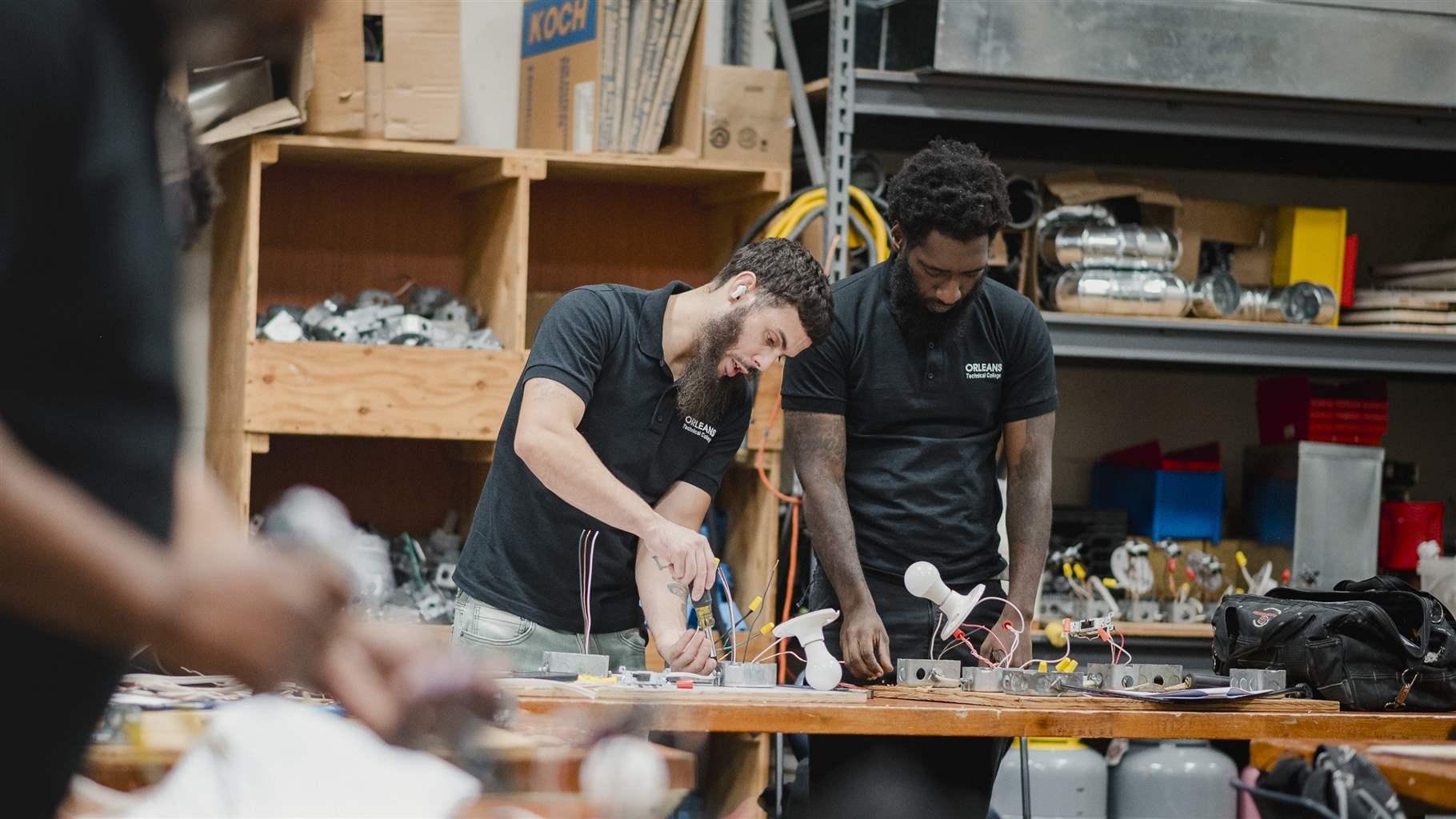Leaders Share Ways to Improve Jobs, Economic Mobility in Philadelphia Region
Lessons from Pew’s ‘State of the City’ event

On April 23, The Pew Charitable Trusts, in collaboration with the Federal Reserve Bank of Philadelphia (Philadelphia Fed), hosted an in-depth conversation about economic mobility in the region, focused on creating higher-quality jobs and making them accessible to a broad range of residents.
Hundreds of leaders from the business, government, and nonprofit sectors attended the event, which followed the Philadelphia Fed’s nationally focused Economic Mobility Summit. The Pew meeting introduced findings from the newly released 2025 “State of the City” report and also highlighted the Southeastern Pennsylvania Economic Collaborative, which seeks to develop a shared strategy for regional economic progress among regional economic, business, civic, and higher education leaders.
“We can’t continue what we’ve done before—working our own strategies, unconnected and without common purpose,” said Donna Frisby-Greenwood, senior vice president for Philadelphia and scientific advancement at Pew, which is helping to facilitate the five-county economic collaborative.
“This is the moment for collective action,” she said.
The Philadelphia Fed’s Ashley Putnam and Bryan Stuart also shared the results of a study examining public attitudes toward economic mobility. Among them: Study participants—mainly from Philadelphia’s lower-income neighborhoods—said they had to establish economic stability before they could even think about trying to move up the economic ladder. For many, household income can vary dramatically from month to month, and an unexpected expense can push them close to the edge—or over it.
As they think about finding better work situations, study participants said structural barriers and work/life trade-offs—such as caregiving responsibilities, transportation access, and health care considerations—limit their options. Even so, most said that quality jobs provide the most promising path toward economic mobility.
But those jobs can be hard to find in and around Philadelphia, Marek Gootman, a nonresident senior fellow at Brookings Metro, told the audience, because the region hasn’t been producing enough of them. Southeastern Pennsylvania generated 70,000 fewer quality jobs from 2012 to 2023 than might reasonably have been expected, considering the national economy’s performance and the area’s industry mix. This is according to a soon-to-be-published Brookings analysis commissioned by Pew, which is previewed here.
Doing better in that regard, Gootman said, will require a concerted regional effort largely focused on three economic sectors that seem best positioned to produce those jobs: material machining, fabrication, and electronic components; enterprise digital solutions, such as business-to-business cloud-based software platforms; and biomedical expansion, the last of which has long been recognized as a regional strength. Some of the jobs would also be open to people without college degrees.
“We’re a shared economy, and there’s a shared opportunity,” Gootman said. “We have to stop talking about individual counties working on economic development and the city of Philadelphia working on economic development in isolation from each other. … We have so much untapped potential.”
The regional economic collaborative is still in its formative stages, with many key decisions set to be made in the coming months.
To help inform those decisions, Elinor Haider, senior director of Pew’s Philadelphia program, moderated a panel of local and regional economic development leaders who discussed the dichotomy between economic growth and mobility.
The panelists’ overall message was that trying to generate both economic growth and economic mobility is essential, unending, and difficult work. The good news, they said, is that some groups that might have previously cared about growth but not mobility now seem to understand that both are vital.
“To me, there’s a sense from business leaders that they want to see change and that they want to be part of the change,” said Mark A. Thomas, president and CEO of the Greater Baltimore Committee.
A key to keeping them on board, he added, is achieving early, tangible victories. “If people can be part of a winning team, then they’ll collaborate,” Thomas said.
Kenny McDonald, president and CEO of One Columbus in Ohio, urged the audience to seize the moment to make as much progress as possible.
“You’re not going to have this level of civic leadership all the time,” McDonald said. “You’ve got to leverage it while you can.”
Rick Siger, secretary of the Pennsylvania Department of Community and Economic Development, said that building a regional initiative requires “a spirit of relentless optimism,” adding: “It’s pretty hard to do the kind of intensive collaboration to come up with a plan that you agree to and then to keep doing that. … [But] this is what it takes to win.”
Pew’s executive vice president and chief program officer, Michael Caudell-Feagan, assured attendees that Pew is deeply committed to this effort, and Frisby-Greenwood reinforced that message.
“Pew will continue to bring all of our tools to the table: research, policy, grantmaking, and convening,” Frisby-Greenwood said. “This work is just beginning. There’s room at the table for everyone.”
Larry Eichel is a senior adviser with The Pew Charitable Trusts’ Philadelphia research and policy initiative.










